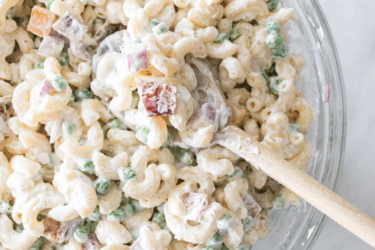In the grim event of a mother’s serious illness, one thought dominates her mind: “What about the kids?”
Susan didn’t suspect a thing. The bubbly mother of a preschooler felt great. She was shocked when a routine mammogram in 2002 showed high grade invasive ductal carcinoma, an aggressive form of cancer that rapidly spreads to healthy tissues and requires immediate life saving treatment.
Cindy lives a few houses away from Susan and always wondered if her day would come. Her aunt had battled breast cancer. She nursed her own mother as the disease ravaged her body, not once, but twice. Then it happened. That nagging fear became a reality 11 days before her 41st birthday when a mammogram revealed that it was Cindy’s turn to fight for her life.
Marcy lives in the same Franklin neighborhood as Susan and Cindy. Despite a shelf full of running trophies, she worried that age was catching up to her when her times started slowing down in the spring of 2000. An odd twitch in her thigh muscle sent her to the doctor, and her family knew there was something seriously wrong when their high energy, firecracker mom asked for a wheelchair during a trip to Disney World. Marcy was diagnosed with ALS (Amyotrophic Lateral Sclerosis), also known as Lou Gehrig’s disease, a fatal illness with no known cause, no cure and no treatment.
Three mothers, three life threatening diseases. One single thought screaming through their minds: “What about the kids?â€
This Can’t Be Happening
Shock, denial, anger and depression are all common responses to a life-threatening diagnosis, but when parents, particularly of younger kids, become seriously ill, it’s a double whammy because they worry not only of their own health, but of the overall well-being of their children, explains Susan Lewis, Ph.D. a clinical psychologist practicing in Nashville. She says, “Suddenly your whole life and the life of your children are defined by this illness.â€
While a childless person tends to think of what she might miss in life, parents’ anxieties focus around the kids. Instead of thinking, “Why me? I’ve always wanted to see the Grand Canyon,” Marcy’s first thought was, “My kids! I want to see Matt graduate and Darcy get married.â€
But missed memories only scratch the surface of a sick mother’s nightmare. The prospect of dying threatens the role that’s defined her life since her babies were born – caring for her children. Susan puts it bluntly, “My biggest fear was that I wouldn’t be here to raise my daughter.â€
Telling the Children
Experts say there’s no right way to tell children that a parent is diagnosed with a critical illness, but they’re unanimous on one basic fact – honesty is the best policy. Trevor Crowder, program manager of Gilda’s Club Nashville, says, “You may want to wait until you get a second opinion or until other family members arrive in town for support, but whatever you do, never lie to your children. They’ll know when something is wrong, and they’ll start wondering what they did to cause it.â€
Lewis recommends giving kids as much information as they can handle at their various ages. She says, “Use the right words because if they don’t hear it all from their parents, they’ll hear it from somebody else. Ask them what they already know about the disease. That way if there are misconceptions, you can clear them up immediately.â€
Both Lewis and Crowder recommend being as honest as possible, but ending the discussion on a positive note by talking about the next steps toward a solution. Younger children can be told, “This is what we know and this is what the doctors will do to make Mommy better.” Older children can handle more treatment details or even accompany Mom to the doctor for support so they become part of a family effort to tackle the disease.
Creating a Community of Support
Once the children get the news, it’s time to share it with the important mentors in their lives: teachers, counselors, coaches, youth leaders and parents of their closest friends. These are the adults that can inform parents when their kids are having a rough day or provide extra comfort and support during such a stressful time. Crowder says, “Number one is the child’s teacher because there are going to be some behavioral or emotional changes in that child. There may be absences, too.” She also recommends keeping coaches or dance teachers in the loop because there might be a different person picking up a child from practice if Mom or Dad isn’t able to. Trusted adults should be aware of the situation because children who might not express anger or fear about things at home may open up to someone outside the family who makes them feel safe.
Thanks to the Internet, it’s easier than ever to keep lines of communication open. Marcy and her husband, Rob, created a Web site with treatment updates, pictures, prayers, email newsletters and a calendar with open dates for friends to deliver meals. Cindy used CaringBridge.com, a free Web service that connects family and friends during a critical illness, treatment or recovery. She used the site to post an online recovery journal and receive messages from well wishers so everyone from friends and neighbors to Sunday School members could stay involved.
Life Interrupted
Cindy, a multi-tasking mom-on-the-go, trained for half marathons, taught a large community Bible study and routinely drove her preteen daughters to soccer practices, cheerleading, sleepovers and school functions. Taking time out to fight cancer was definitely not on her schedule. She says, “I thought, ‘I don’t have time to be sick!,’ but as a mother, my first priority was to keep the kids’ lives as normal as possible.” So she relied on other family members to get the girls off to school in the morning, and enlisted the aid of friends and neighbors to drive them to their activities.
Lewis stresses the importance of maintaining children’s routines during times of family upheaval. “That structure is a source of security,” she says. “It’s the fabric of their lives. If everything changes (when a parent becomes ill), it’s very scary. Even if you have to recruit other people to maintain a normal schedule, do it!â€
Marcy and Rob joke, “It’s like carpooling, except we aren’t able to take our turn.” But their family discovered a hidden benefit of the children riding to events with a buddy. “Almost everywhere the kids go, they walk in with a friend and enjoy the occasion together.â€
A New Kind of Normal
“It’s impossible to be the same person after you go through something like this,” says Susan who says that the fear of leaving her daughter motherless caused her to set high expectations for her child in hopes of creating a strong, independent girl who could function without her. “Sometimes today I’m probably harder on her than I would have been if I hadn’t been sick,” she says.
All three mothers experienced spiritual changes, too. They say their illnesses strengthened their personal relationships with God; a bond that they now share openly and frequently with their children. Rob says, “We are better parents because of this experience. In addition to teaching them about this life, we have a clearer vision of – and can give them a glimpse into – the next life, the better life, the eternal life that is coming.” Susan agrees, “A critical illness makes some people bitter, but it made me a better person.â€
Today
Following an immediate double mastectomy, a full hysterectomy, chemotherapy and five years of continuous medications, Susan remains cancer free.
Like her mother and aunt, Cindy also endured multiple surgeries and chemotherapy. She is cancer free, carpooling like crazy and training for another half marathon.
Although Marcy is a quadriplegic and breathes with a ventilator, her mind remains sharp, and she continues to communicate with family and friends using a voice synthesizer that reads her eye movements. Rob quit his job to care for her full time, and the family relies on the generosity of others for their basic needs. If you’d like to help, visit everydayisprecious.com.
All of their children are thriving.
Deborah Bohn is a mom and frequent contributor to this publication. She lives in Franklin.




